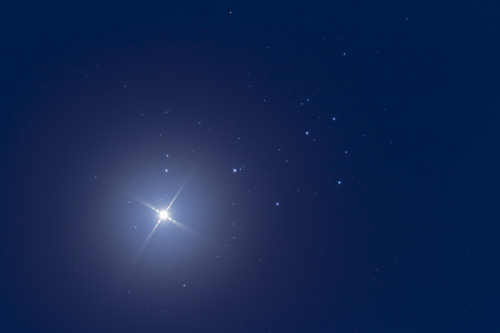Why do stars look like they stay in the same pattern, while planets move?
Stars are so far away that their position changes are hard to notice.
What happens when light hits a mirror?
It reflects at the same angle it hits the mirror.
What happens when light passes through a prism?
It bends and separates into colors (refraction).
What does it mean if an object is transparent?
Light passes through it completely (like glass).
What is one limitation of a solar system model made with balls?
It doesn’t show accurate distances between planets.
What is one major difference between a planet and a star?
Stars make their own light; planets reflect light.
What is reflection?
When light bounces off a surface.
What is refraction?
The bending of light as it moves through different materials.
What does translucent mean?
Some light passes through, but not all (like a lampshade).
Why do scientists use models of the solar system?
To help visualize things that are too big or far away to study directly.
Why does Venus look brighter than Polaris in the sky?

Venus is closer to Earth and reflects more sunlight.
What kind of surfaces reflect light best?
Smooth, shiny surfaces like mirrors or metal.
What everyday object shows refraction in action?
A straw that looks bent in a glass of water.
What does opaque mean?
No light passes through (like a wall).
What tool helps us see distant stars and planets?
A telescope.
What causes the different phases of the moon we see?
The moon’s position changes relative to Earth and the Sun.
Why can you see yourself in a mirror but not in a wall?
A mirror reflects light clearly; walls scatter light.
How is refraction different from reflection?
Reflection bounces light; refraction bends light.
Which object is transparent: a window or a fence?
A window.
Why can’t microscopes help us study planets?
They are for tiny, close objects—not faraway ones.
Why do some stars appear brighter even if they are not the biggest?
They might be closer to Earth or have a higher temperature.
How does a periscope use light?
It uses mirrors to reflect light so you can see around corners.
Why do rainbows form after rain?
Sunlight is refracted and separated by water droplets in the air.
Classify these: lamp shade, fence, ice cube, and window.
Lamp shade & ice cube = translucent; window = transparent; fence = opaque.
Why can’t we make a true-to-scale model of the solar system?
The distances between objects are too large compared to their sizes.